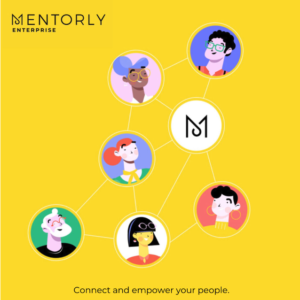Welcome! This article explores the many benefits of professional mentorship. Now it’s dive-in. 🏊♀️
Too busy to read the entire article? We understand, here’s the TLDR:
- Knowledge and Encouragement
- Goal Setting and Accountability
- Mentor Fulfillment
- Organizational Benefits
- Network Expansion
- Trust and Constructive Feedback
- Early Mentorship Can Broaden your Horizon
Mentorship is quickly becoming one of the most important relationships people can enter to make the most out of their personal and professional journeys. It offers tremendous benefits for both parties and can help them extend their networks, grow as people, and find fulfillment faster. A proper understanding of the advantages of professional mentorship should make it easier to decide whether to become a mentee or to mentor someone in the workplace.
Knowledge and Encouragement
A mentor acts as a knowledge source equipped with crucial information and insights in a particular niche. Such understanding of how to develop useful skills and perform tasks can help mentees improve themselves quicker than going through months or years of trial and error. But a mentor doesn’t just offer guidance. They provide ongoing encouragement.
Learning to develop skills from an experienced mentor can help mentees progress faster than peers who don’t have guidance. But even professional assistance and mentorship in the workplace won’t prevent the occasional struggles. Some goals are harder to reach than others, and mentees can still experience a loss of confidence. However, mentors are there to provide support and encouragement, instill confidence in mentees, and keep pushing them to accomplish what they set out to achieve.
Goal Setting and Accountability
Setting goals can be harder than many people believe, especially when they don’t have a long history of doing it correctly. Professional mentorship enables mentees to visualize specific and realistic goals and create a blueprint for how to succeed. Mentors intervene to clarify the process of goal setting and help focus mentees on creating the right goals and a system to track and measure progress.
Furthermore, mentorship creates the perfect environment for accountability. Setting goals is one aspect of achieving one’s personal or professional desires. Sticking to the plan, putting in the work even when it’s difficult, and staying focused are the elements that matter the most. This is where mentorship is beneficial.
A mentor is in the perfect position to keep a mentee accountable, focused, and true to their priorities based on the goals they set. Mentors can intervene directly or maintain accountability passively, knowing that their presence and guidance serve as extra motivation for the mentee to do the work, improve, and succeed!
Mentor Fulfillment

It’s easy to assume that a mentorship relationship benefits only mentees. In reality, professional mentorship in the workplace is advantageous for all stakeholders in a company. Teaching and guiding a mentee pushes mentors to develop new skills, hone existing skills, and become even better at what they do.
A great example of this is active listening, which is a key ingredient to a successful mentorship relationship. Working with one or more mentees puts mentors in a position to develop active listening skills so they can offer the best advice.
In addition, sharing knowledge and helping someone else succeed does a lot for a mentor’s self-worth. Fulfillment through teaching is a powerful motivator and can create a deeper sense of purpose or responsibility, especially for someone who has already achieved a lot in their career.
Organizational Benefits
A successful mentorship relationship can positively affect entities existing outside this relationship. For example, companies with mentorship programs benefit from having their more experienced members teach and guide newer talent. The faster someone develops in their role and learns vital skills, the quicker they can add value to the company.
Emphasizing mentorship in a professional environment also sends a strong message from the leadership to other employees. It says that the company values the development of its employees and is willing to invest time and resources to make everyone perform better.
This should help with employee retention and minimize turnover while simultaneously improving the efficiency of any talent acquisition efforts. Any company with a strong focus on career development and mentorship is an attractive workplace for new and highly qualified employees.
Network Expansion
Making connections is one of the best ways to learn new skills, discover lucrative opportunities, and reach goals that once seemed impossible. No one can do everything independently, and working with people with complementary skills and knowledge is the quickest way to overcome obstacles and get the desired results.
Mentors can introduce mentees to the right people in their fields, connect them with experts, and create opportunities to further their growth and skill development.
A strong network of experts can be a priceless tool for career advancement. That’s why mentees must pick a mentor with experience in their niche. They will have both the knowledge and connections to guide and assist the mentee in their development and ensure consistent progress toward their goals.
Besides, as mentees gain more connections, they become new connections themselves for their mentors, helping them expand their network with skilled individuals.
Trust and Constructive Feedback
The give-and-take nature of an open mentorship relationship helps build trust between the mentor and mentee. This can give mentees more peace of mind about their career trajectory and encourage them to accept guidance. Moreover, having someone to trust can instill more confidence and make it easier to set ambitious goals and tackle complex obstacles.
Trust facilitates more constructive feedback. Of course, mentors must encourage their mentees and keep them motivated. Yet trust and open communication leave plenty of room for constructive feedback. Mentors who earn the trust of their mentees can get their messages across more easily, say the tough things that mentees might not like to hear, and ensure the guidance registers with the mentee. This is a great way to uncover weaknesses and turn them into strengths.
Early Mentorship Can Broaden Your Horizon
There’s no right or wrong time to enter a mentorship relationship. Everyone has their own reasons for needing a mentor or wanting to share their knowledge and develop more interpersonal and leadership skills. But given its numerous advantages, enlisting in a mentorship program sooner than later can help fast-track one’s social, personal, and professional development, opening new doors and creating more opportunities.


